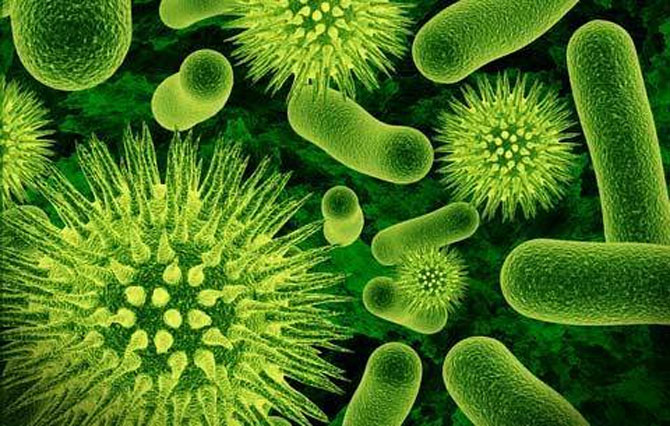'Poop Pills' May Halt Gut Infections

Get the world’s most fascinating discoveries delivered straight to your inbox.
You are now subscribed
Your newsletter sign-up was successful
Want to add more newsletters?

Delivered Daily
Daily Newsletter
Sign up for the latest discoveries, groundbreaking research and fascinating breakthroughs that impact you and the wider world direct to your inbox.

Once a week
Life's Little Mysteries
Feed your curiosity with an exclusive mystery every week, solved with science and delivered direct to your inbox before it's seen anywhere else.

Once a week
How It Works
Sign up to our free science & technology newsletter for your weekly fix of fascinating articles, quick quizzes, amazing images, and more

Delivered daily
Space.com Newsletter
Breaking space news, the latest updates on rocket launches, skywatching events and more!

Once a month
Watch This Space
Sign up to our monthly entertainment newsletter to keep up with all our coverage of the latest sci-fi and space movies, tv shows, games and books.

Once a week
Night Sky This Week
Discover this week's must-see night sky events, moon phases, and stunning astrophotos. Sign up for our skywatching newsletter and explore the universe with us!
Join the club
Get full access to premium articles, exclusive features and a growing list of member rewards.
Bacteria extracted from human poop are the main ingredients of a new pill that may help treat patients who have difficult-to-cure intestinal infections, according to a new study from Canada.
The study involved 32 patients with recurrent Clostridium difficile, a bacterial infection that causessevere diarrhea and can be life-threatening. The infection can occur after people take antibiotics, which often wipe out "good" bacteria and leave the door open for harmful bacteria like C. difficile to flourish in the gut. Some patients, like those in the study, become trapped in a cycle of antibiotic treatment and recurrent C. difficile infection,said study researcher Dr. Thomas Louie, professor of medicine at the University of Calgary in Alberta.
Study participants had suffered at least four bouts of C. difficile prior to the study. But after taking the pills — which repopulate the gut with "good" bacteria — nearly all participants were free of C. difficile infection, and have not had another infection since then, in the three months to three years that they have been followed. Just one participant appears to have had a recurrence, and this was after taking antibiotics for a separate infection, Louie said in a news conference today. [5 Ways Gut Bacteria Affect Your Health]
Poop transplants, formally known as fecal microbiota transplantation, have been previously shown to be an effective way to treat C. difficile infections.But in earlier studies, fecal bacteria were typically delivered through anenema, or a tube placed either in the colon, or into the nose and leading down to the gastrointestinal tract.
"Pills are a great option because they're easier for patients to take, [and] don't involve costly, invasive procedures," Louie said. And some patients fail to respond to enemas (because of incontinence), and cannot tolerate nose tubes for medical reasons, he said.
The researchers made the pills by processing donor fecal matter until it contained only bacteria. Then, they put the bacteria into three-layer capsules that do not disintegrate until they are passed the stomach and into the small intestine, Louie said.
Participants took 24 to 34 capsules over a five- to 15-minute period, and the pills were well-tolerated (no one vomited after swallowing the pills).
Get the world’s most fascinating discoveries delivered straight to your inbox.
"Many people might find the idea of fecal transplantation off-putting, but those with recurrent infection are thankful to have a treatment that works," Louie said.
"It is still early research, but it may be a good option for patients who just can't break the cycle of repeated C. difficile infections," Louie said.
In the future, if researchers can discover which bacteria are mainly responsible for "curing" patients of C. difficile, those bacteria could be grown in a lab and manufactured into pills, Louie said.
The study was presented today (Oct. 3) in San Francisco, at IDWeek, a meeting of several professional medical organizations, including the Infectious Disease Society of America and the Society for Healthcare Epidemiology of America. It has not been published in a peer-reviewed journal.
Another study presented at the meeting found that patients are satisfied with existing methods of fecal transplantation. The study surveyed 28 patients who received a fecal transplant through a tube in the nose that went into their GI tract. On average, patients rated their overall satisfaction with the procedure as 9.6 out of 10. When asked how likely they were to recommend the procedure to a family member or friend, the rating was 9.9 out of 10.
About 500,000 Americans become ill with C. difficile each year, and 14,000 die, according to the Centers for Disease Control and Prevention. Between 15 and 30 percent of patients with C. difficile experience recurrent infections.
Follow Rachael Rettner @RachaelRettner. Follow LiveScience @livescience, Facebook & Google+. Original article on LiveScience.

Rachael is a Live Science contributor, and was a former channel editor and senior writer for Live Science between 2010 and 2022. She has a master's degree in journalism from New York University's Science, Health and Environmental Reporting Program. She also holds a B.S. in molecular biology and an M.S. in biology from the University of California, San Diego. Her work has appeared in Scienceline, The Washington Post and Scientific American.
 Live Science Plus
Live Science Plus










